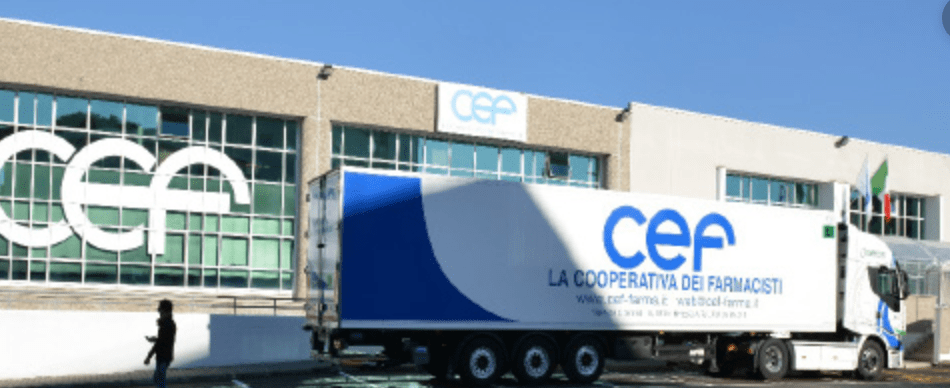 Cooperativa Esercenti Farmacia scrl (CEF) sold the properties relating to eight logistics centers to a fund managed by Italy’s real estate asset manager Kryalos sgr before Christmas. CEF, based in Brescia, is the first Italian Cooperative in terms of vintage, turnover and number of members in the Italian pharmaceutical sector (see the press release here).
Cooperativa Esercenti Farmacia scrl (CEF) sold the properties relating to eight logistics centers to a fund managed by Italy’s real estate asset manager Kryalos sgr before Christmas. CEF, based in Brescia, is the first Italian Cooperative in terms of vintage, turnover and number of members in the Italian pharmaceutical sector (see the press release here).
Pirola Corporate Finance acted as financial advisor to CEF, Studio Pirola Pennuto Zei & Associati instead handled the legal and tax aspects of the transaction. Finally, Kryalos sgr was assisted by Mileway, the largest European platform dedicated to last mile logistics, launched by Blackstone in September 2019. Mileway has acted as an advisor and will also maintain this role in property management.
Kryalos for its part had announced in turn that before Christmas the Aphrodite fund managed by Kryalos sgr had 42 last-mile logistics properties in Italy in its portfolio, of which 21 acquired in the last two months of the year (see here a previous article by BeBeez). As part of these operations, Kryalos had been assisted by Mileway, who acted as advisor and will also maintain this role in property management.
Founded in 1934, today it is the first Cooperative for market shares and the second player in the pharmaceutical distribution in Italy. With a turnover of more than 1.4 billion euros, almost 2k members and more than 6k pharmacies served every day, it has one thousand employees and the 12 logistics hubs present throughout the peninsula. The CEF headquarters are in Brescia, while the other branches are in: Bolzano Vicentino (Vicenza), Cremona, Erba (Como), Lallio (Bergamo), Lecce, Lucera (Foggia), Modugno (Bari), Nola (Naples) , Pisa, Rome and Scorzè (Venice).
Over the years CEF has absorbed various realities such as Socrefarma, Farpro, Al-Pharma, Cofapi, Vem, Farpas, Sinfarma, Nef, CTF, Farmacampania and Coofarma Salento. CEF has two networks in its portfolio which total more than 1,400 associated pharmacies: “FarmaciaINsieme” with 1,188 pharmacies; and “+ bene” with around 300. The operation just announced will support CEF’s growth plan, including the process of direct purchase of pharmacies started in 2019.
As is known, Italian Law 124 dated 04.08.2017 revisited the provisions relating to the control structure of pharmacies in some fundamental elements. In particular, the following have been envisaged: 1) the possibility for companies to buy ownership in personally owned pharmacy; 2) the removal of the limit of the four licenses for the same company; 3) the elimination of subjective requirements for participation in companies that manage pharmacies; and 4) the possibility that the management of the pharmacy managed by a company is also entrusted to a pharmacist who is not a shareholder. All elements that, despite the presence of a 20% control limit for pharmacies in the same region, push towards the concentration of the sector and attract the interest of international groups and private equity funds (see here a previous article by BeBeez).
All is happening in a sector where the lengthening of payment terms by the Italian Public Administration, together with the erosion suffered by the margins of pharmacies over the years due to the drop in the price of drugs, has determined a continuous increase in the use of credit and forms of alternative financing, with wholesalers who are increasingly among the major creditors of pharmacies in difficulty and could thus become financial backers. Here then is that the investment spaces are all right.
It is no coincidence that in November 2018 the major Italian infrastructure asset manager F2i sgr signed its first deal in the sector, buying control of Farmacrimi, the Rome-based group which owns 12 pharmacies and 14 parapharmacies, as well as a company active in the wholesale distribution of medicines, both controlled by the entrepreneur from Messina Vincenzo Crimi (see here a previous article by BeBeez).
While in November 2019 Banca Profilo launched a pharmacy club deal, called Apotek, with the aim of buying 40-50 pharmacies concentrated in cities in Northern Italy. To finance the project, a holding company (Neo Apotek) has been set up in which a capital increase of up to 30 million will be carried out in two rounds of funding (see here a previous article by BeBeez).


